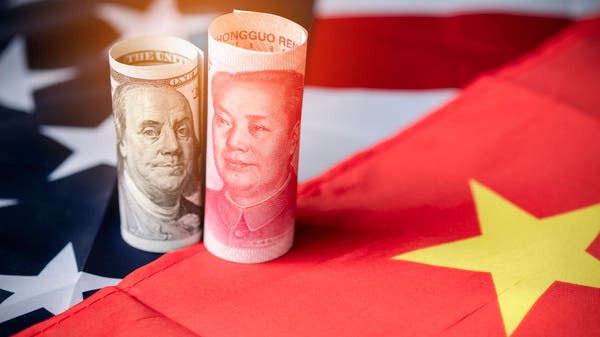Increased The dollar rose broadly on Monday as protests over “Covid-19” restrictions in China stoked uncertainty and weighed on sentiment.and once again unleashing panic in the financial markets, which led to the decline of the yuan and pushed nervous investors towards the dollar as a safe-haven asset.
‘Covid’ protests have erupted across China and spread to several cities in the wake of a fire that killed people in Urumqi, in the far west of the country, where hundreds of protesters and police clashed in Shanghai on Sunday night .
And the dollar rose against the yuan by 0.76% on the start of foreign trade in Asia to 7.2456.
The Australian dollar fell 0.61% to $0.6714, while the New Zealand dollar fell 0.5% to $0.6216.
In a bid to shore up a slowing Chinese economy that has struggled with severe coronavirus restrictions, the central bank said on Friday it would cut the required reserve ratio for banks by 25 basis points from December 5.
The euro fell 0.25% to $1.0377, while the pound fell 0.24% to $1.2060.
The Japanese yen fell about 0.1% to 139.27 to the dollar.
China protests
The latest developments in China have halted the depreciation of the dollar, which has fallen in recent weeks, in hopes that the Federal Reserve (the central bank of the United States) will soon slow the pace of interest rate hikes, a view endorsed by the minutes of the November meeting of the Reserve Bank, which were released this week.
The dollar index fell against a basket of currencies by 0.08% to 106.25, but did not fall to its lowest level in three months at 105.30.
Overall, the index is still on track to post a monthly decline of about 5%, which represents its biggest decline in 12 years, as investors hang on to signs of a change in the Federal’s monetary tightening policy. Reserve.
Federal Reserve Chairman Jerome Powell will deliver a speech on the outlook for the US economy and job market at an event at the Brookings Institution on Wednesday, likely to provide further clues about the outlook for US monetary policy.
Asian markets down
Hong Kong’s Hang Seng fell 4.2% in early trading, while China’s CSI 300 fell as much as 2.5%, according to the Financial Times.
Japan’s Nikkei index fell for a second straight session on Monday as protests in China against tight restrictions to combat the Corona virus hurt investor sentiment, while tech stocks fell in line with their counterparts at Wall Street.
The Nikkei index closed the day of trading down by 0.42%, at 28,162.83 points. It closed down 0.35% on Friday after hitting a two-month high in the previous session.
The broader Topix index fell 0.68%.
European stocks
European stocks fell off three-month highs on Monday, led by declines in energy, retail and mining stocks, after widespread protests in China over harsh COVID-19 restrictions triggered a sell-off in global markets.
The Stoxx 600 index of European stocks fell 0.5% as of 08:02 GMT, following a sharp drop in Asian stocks, according to Reuters.
Shares of European oil companies fell 2.0% as Brent and U.S. crude oil prices fell nearly 3%, while falling metal prices hit shares of mining companies, which fell by ‘1.1%.
Other European sectors with exposure to China, including automakers, also fell in early trade.


